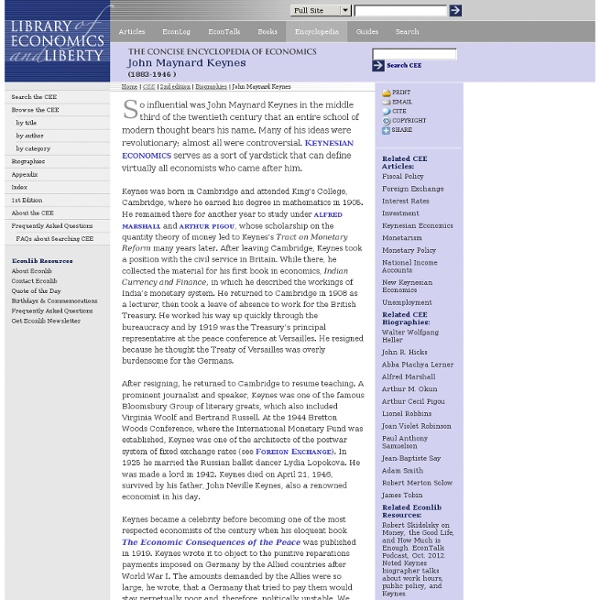



Keynes predicts economic chaos — History.com This Day in History — 6/28/1919 At the Palace of Versailles outside Paris, Germany signs the Treaty of Versailles with the Allies, officially ending World War I. The English economist John Maynard Keynes, who had attended the peace conference but then left in protest of the treaty, was one of the most outspoken critics of the punitive agreement. In his The Economic Consequences of the Peace, published in December 1919, Keynes predicted that the stiff war reparations and other harsh terms imposed on Germany by the treaty would lead to the financial collapse of the country, which in turn would have serious economic and political repercussions on Europe and the world. By the fall of 1918, it was apparent to the leaders of Germany that defeat was inevitable in World War I. After four years of terrible attrition, Germany no longer had the men or resources to resist the Allies, who had been given a tremendous boost by the infusion of American manpower and supplies. Fact Check We strive for accuracy and fairness.
Eugenics Eugenics (/juːˈdʒɛnɪks/; from Greek eu, meaning "good/well", and -genēs, meaning "born") is the belief and practice of improving the genetic quality of the human population.[2][3] It is a social philosophy advocating the improvement of human genetic traits through the promotion of higher reproduction of people with desired traits (positive eugenics), and reduced reproduction of people with less-desired or undesired traits (negative eugenics).[4] History[edit] Eugenics, as a modern concept, was originally developed by Francis Galton. It has roots in France, Germany, Great Britain and the United States in the 1860s-1870s.[5] American William Goodell (lived from 1829 to 1894) advocated castration and spaying of the insane.[6] Mortality rates from "Battey's operation", the surgical removal of healthy ovaries, was as high as one in five deaths at the time, but the surgery kept being performed.[7] Meanings and types[edit] Galton in his later years Eugenics also had a place in medicine.